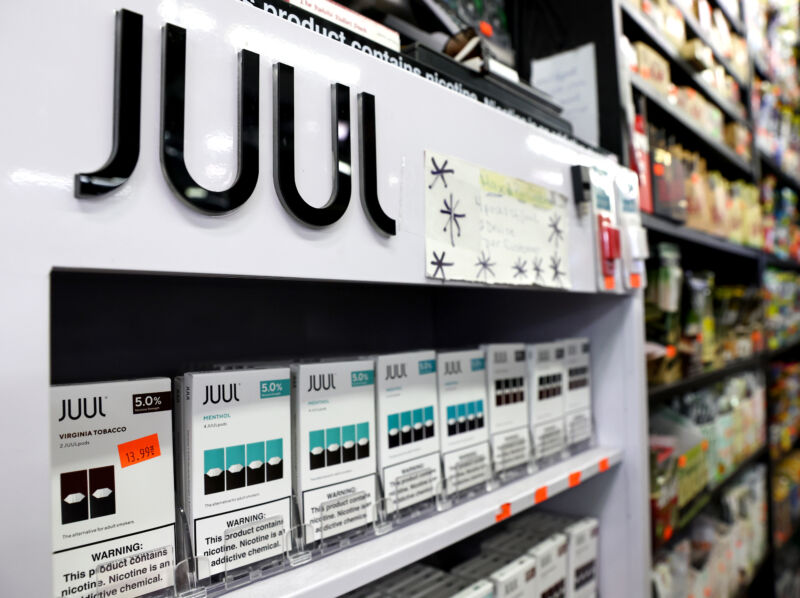
With its business going up in smoke, e-cigarette giant Juul filed an emergency motion Monday to halt the FDA's decision to deny the company permission to market any of its products in the US, effectively forcing it out of business.
The decision was leaked to The Wall Street Journal last Wednesday, June 22, and the regulator publicly announced the decision Thursday. On Friday, a panel of federal appeals court judges granted Juul a temporary administrative stay, allowing the company to continue to sell its products while the court reviews Juul's emergency petition to halt the FDA's decision. Juul had until noon Monday to submit its petition. The administrative stay is not based on the merits of Juul's argument in any way, the judges noted.The Wall Street Journal reported Friday that Juul is considering filing for Chapter 11. According to the report, people are familiar with the matter. Juul didn't respond to the request for comment.
Minutes before the noon deadline, Juul filed an emergency petition requesting a stay of the FDA's marketing denial. The FDA has until July 7th to respond to the petition before the court makes a decision.
AdvertisementIn its petition, Juul argued that it was wrongly vilified and that the FDA denied its authorization while under political and financial pressure to do so. The FDA denied the product because of insufficient toxicology data, but Juul argued that the data the FDA was requesting was in his original submission.
The FDA reviews authorization requests differently than competitors. The FDA didn't give the company a chance to respond to concerns about insufficient data before revealing its decision. The company said that it learned of the FDA's decision through the leak of The Wall Street Journal.
The company argued that the FDA overlooked its data and denied it authorization, which will cause the company irreparable injuries and eventually shutter its business.
The FDA has less than a week to respond. The former director of the FDA's Center for Tobacco Products, who retired in April, told the Journal that the FDA's decision was not influenced by politics. He said that the review was a scientific one. The system is supposed to work like that.